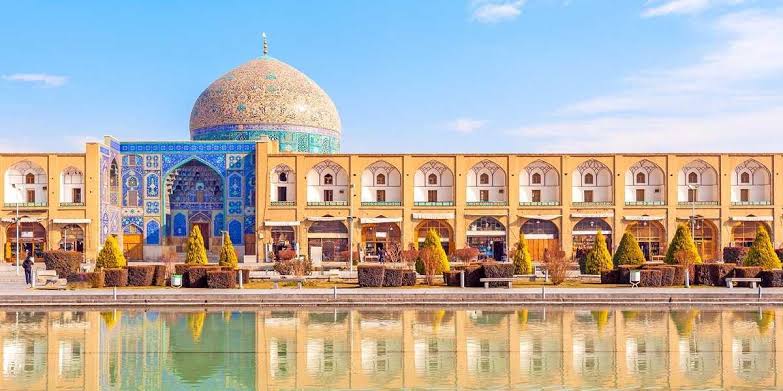≡-Iran Considers Closing the Strait of Hormuz, Threatening Global Trade and Energy Security, with Major Implications for Europe, the US, Saudi Arabia, UAE, and Global Markets – Viral of Today
<> Viral of Today <>
Home » TOURISM NEWS » Iran Considers Closing the Strait of Hormuz, Threatening Global Trade and Energy Security, with Major Implications for Europe, the US, Saudi Arabia, UAE, and Global Markets Monday, June 23, 2025The Strait of Hormuz, one of the most critical chokepoints for global oil trade, has become the focal point of rising geopolitical tensions, particularly as Iran’s military officials hint at the possibility of closing this vital passage. Sardar Esmail Kowsari, a commander of the Iranian Revolutionary Guard, recently declared that closing the Strait is “under consideration,” with Iran’s leadership prepared to act with determination to protect its interests. This statement signals a potential escalation in the ongoing regional conflict, with serious consequences for global trade, especially for Europe’s energy security.The Strait of Hormuz serves as the conduit for approximately 20% of the world’s oil and significant volumes of natural gas. Any attempt by Iran to block or restrict access to this narrow but crucial waterway would reverberate globally, sparking economic and security concerns across many nations. As Iran considers military and strategic measures, including missile strikes, drones, and potential naval blockades, the implications for global trade and Europe’s economy are becoming increasingly severe.The Strait of Hormuz: A Vital Global PassagewayThe Strait of Hormuz lies between Iran and the Arabian Peninsula, connecting the Persian Gulf with the Gulf of Oman. It is the world’s most important oil shipping lane, facilitating the transit of crude oil and natural gas from the Middle East to markets worldwide. Every day, hundreds of tankers pass through this narrow passage, transporting vital energy supplies to Europe, Asia, and beyond. A disruption here would send shockwaves through the global energy market, especially for Europe, which depends heavily on oil and liquefied natural gas (LNG) imports from the Gulf region.Potential Impact on European Energy SecurityFor Europe, the closure of the Strait of Hormuz could have far-reaching consequences. European countries, especially those that rely on oil imports from Gulf states like Saudi Arabia, Qatar, and the UAE, would face severe energy shortages. If Iran were to block the Strait, global oil prices would inevitably surge, pushing up the cost of energy and fueling inflation. Countries with high dependencies on Middle Eastern fuel would be especially vulnerable, including Italy, Germany, and France, which rely on oil and gas shipments passing through this strategic route.As energy costs rise, so too would the pressure on European industries. Manufacturing, transport, and agriculture sectors—already grappling with supply chain issues—would face increased operating costs, threatening their competitiveness in the global market. The economic blow would be compounded by the potential for market instability, as European stock exchanges could experience heightened volatility, further disrupting economies that depend on affordable energy supplies.Disruptions to Global Shipping and TradeBeyond oil, the Strait of Hormuz is a vital passage for global trade. In addition to oil, many goods such as raw materials, electronics, and consumer products are transported through the Strait, making it a key artery for global supply chains. Any disruption in this passage would delay the delivery of goods, leading to shortages and price hikes worldwide.For Europe, this would mean disruptions in the flow of essential materials. The impact would be felt particularly in industries reliant on imported goods and raw materials. Electronics and manufacturing sectors would be hit hard, as their supply chains depend on the smooth transit of goods through this strategic passage. Higher insurance premiums for shipping companies, as a result of the threat to shipping lanes, would raise the cost of goods and services, affecting consumers and businesses alike.Military Escalation and Security ConcernsThe prospect of Iran closing the Strait of Hormuz has prompted concerns about military escalation. Iran’s Revolutionary Guard has warned that they are prepared to take action against what they deem as “enemy” interests, signaling that military intervention is on the table. The potential for conflict in the Gulf could quickly escalate, involving U.S. and European navies, Gulf states, and regional powers. Such a confrontation could trigger a broader regional war, with Europe likely being drawn into the conflict due to NATO obligations and its interests in maintaining stability in the region.The U.S. and European powers have maintained a strong military presence in the Gulf to safeguard freedom of navigation, but a blockade by Iran would put these forces in direct confrontation with Iranian naval units. As Iran has shown in the past, including the 2012 cyberattack on Saudi Arabia’s oil industry, its capabilities in both conventional and unconventional warfare are expanding. In addition to traditional military tactics, Iran’s use of drones, missiles, and cyberattacks poses new threats to shipping lanes and regional stability.The Broader Economic and Security FalloutThe ripple effects of a potential blockade of the Strait of Hormuz would extend beyond energy markets. A disruption of global trade flows, combined with heightened geopolitical tensions, would create a volatile economic environment. With Europe’s economy closely tied to the Middle East through energy imports and trade routes, any instability in the region would have immediate consequences.While the global energy market would undoubtedly be the most affected, sectors such as tourism, logistics, and finance would also see substantial impacts. Shipping delays would disrupt the timely movement of goods, affecting industries that rely on just-in-time inventory systems. Furthermore, the broader economic slowdown caused by rising energy prices and trade disruptions would dampen consumer spending and investment, leading to slower economic growth.The Path Ahead: Diplomatic Efforts and Global ResponseWith tensions mounting in the Gulf, the international community is closely monitoring the situation. Countries across the world, particularly in Europe and Asia, are advocating for diplomatic solutions to prevent further escalation. Europe, in particular, has called for calm and dialogue, urging all parties to avoid military confrontation and seek peaceful resolutions. The European Union has emphasized the need to uphold the principles of international law, ensuring that global shipping lanes remain open and secure.The United Nations and other international bodies are likely to play a crucial role in mediating tensions and facilitating dialogue between Iran and the international community. Efforts will be made to de-escalate the situation, with the goal of preventing a full-scale military conflict that could disrupt both regional and global stability.Conclusion: A Critical Moment for Global Energy SecurityThe potential closure of the Strait of Hormuz represents a critical juncture for global energy security, trade, and stability. The threats from Iran to block this vital waterway would have far-reaching consequences for Europe, especially in terms of energy prices and supply chain disruptions. The economic impact would be severe, and the possibility of military escalation adds another layer of uncertainty to the global situation.As the international community works to address these challenges through diplomacy and dialogue, the situation remains precarious. The continued security of the Strait of Hormuz will be vital not just for the Middle East but for the entire world, as it is a key lifeline for energy transport and global trade. With tensions rising, it is essential that global leaders act swiftly to prevent further conflict and protect the stability of the region.Tags: energy security Europe, energy shortages Europe, EU Iran tensions, Europe oil imports, European economy impact, Geopolitical tensions, Global shipping disruptions, Iran missile strikes, Iran oil blockade, Iran Strait of Hormuz, Iranian military actions, military escalation in the Gulf, oil price surge, shipping trade disruption, Strait of Hormuz closure
This information will surprise you!
See also
- Read until the end to discover everything.
- Important information you need to know.
- Interesting facts and helpful tips.
Conclusion
Did you enjoy the news? Keep following us daily!













